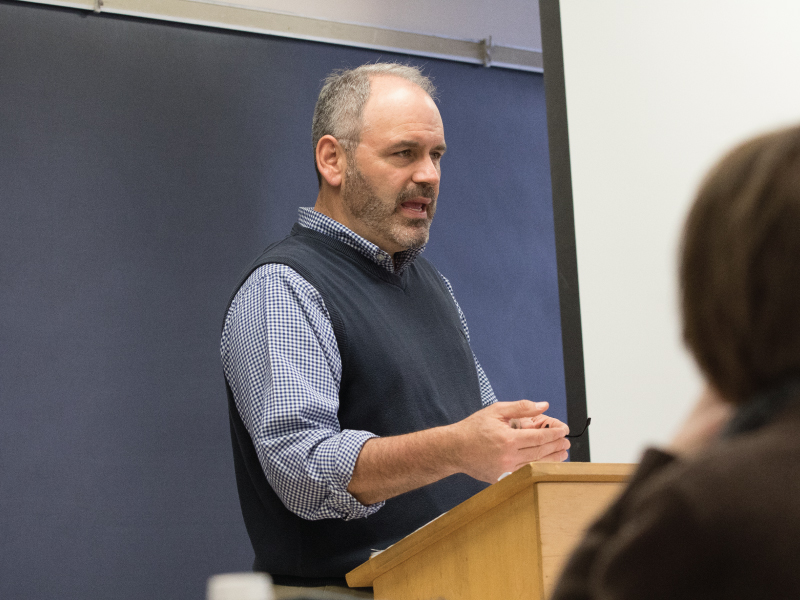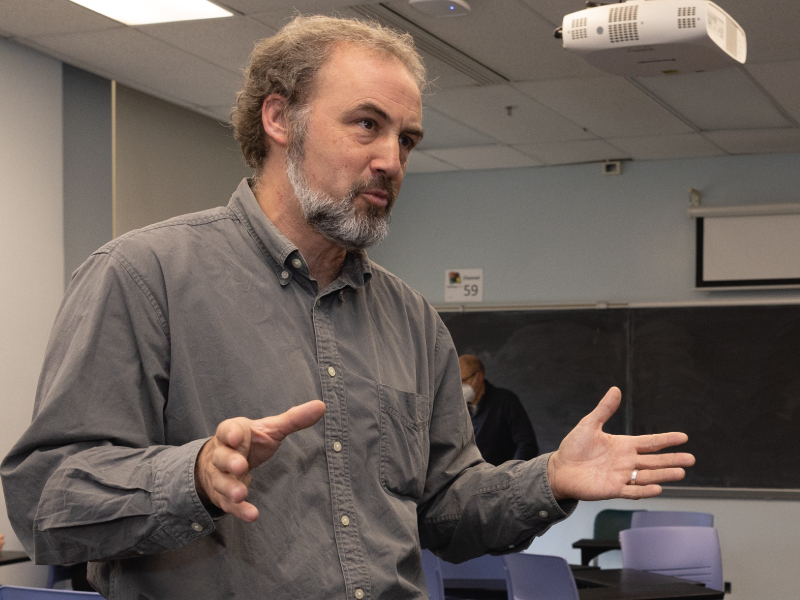Diplomacy Lab projects offer Miami students the chance to help shape international policy
Real world research opportunities realized through U.S. State Department
Diplomacy Lab projects offer Miami students the chance to help shape international policy
Real world research opportunities realized through U.S. State Department
More than 30 Miami University students across several departments are taking part in international policy research by working on unique projects for the U.S. Department of State through the Diplomacy Lab, a program that harnesses the work of university students and professors to tackle individual foreign policy challenges around the globe.
The State Department’s Diplomacy Lab publishes 60-80 potential projects for research and recommendations each semester that cover a wide range of international political issues, such as sustainable development, human rights, and global health. This menu is sent to roughly 50 select university partners around the country who are invited to submit research proposals to help guide future policy.
Their input expands the knowledge base for international policy and allows the State Department to include more diverse ideas in the search for solutions to complex global policy questions. As a partner university, Miami has submitted four proposals in the past year, and all four were accepted by the Diplomacy Lab. One project took place during fall semester, and three more are underway this winter and spring.


Youth Entrepreneurship in Saudi Arabia
During the fall, a team of students under the guidance of Nathan French, assistant professor of Comparative Religion and director of Miami’s Study Abroad programming and trained in Islamic Studies, and Michael Conger, an associate professor with the Farmer School of Business Entrepreneurship Program, conducted an independent study to explore the topic of “Understanding and Unleashing Youth Entrepreneurship in Saudi Arabia.”
According to the State Department, more than 36 percent of Saudi Arabia’s population is between 15 and 34, yet unemployment hovers near 12 percent. The goal of the project was to help the State Department identify barriers to entrepreneurship for young people and uncover opportunities created by business climate reform currently underway in Saudi Arabia. The hope was that the project could point to potential areas of cooperation between the U.S. and Saudi Arabia and deepen the understanding of policy options.
Miami’s proposal produced an extensive report, totalling more than 100 pages, and involved students conducting a series of interviews with Saudi entrepreneurs. The project also explored the possibilities of Islam as a factor of mobilization and motivation for Saudi entrepreneurship. The student researchers included several individuals with Arabic language fluency.
Congressional attitudes toward the International Criminal Court
Two groups, one led by John Forren, associate professor and chair of Miami’s Department of Justice & Community Studies and the executive director of the Menard Family Center for Democracy, and another led by Steven Conn, W.E. Smith Professor of History, will study global criminal justice and congressional attitudes toward the International Criminal Court over its 20-year history.
The projects involve two courses in the history of the court, one during winter term led by Forren, and a spring capstone in history led by Conn. Participants reviewed a report on statements by members of Congress about the court and how they have changed, positively, negatively or neutrally, with the development of international political events since the court’s founding in 2002. The teams will present their findings in Washington, D.C. at the end of the semester.
Influence of Confucius Institutes at German universities
An independent study program led by Joseph O’Neil, associate professor of German, will examine the role of Confucius Institutes, which promote Chinese language and culture and are affiliated with the Ministry of Education of the People’s Republic of China (PRC), at universities in the Federal Republic of Germany. The project will examine the extent to which Confucius Institutes, which operate at universities around the world, serve to project a positive image of the PRC while potentially limiting discussion of controversial issues.
Third-year Diplomacy and Global Politics and History major Jacquie Linden will work with O’Neil to develop a report for the U.S. Embassy in Berlin that examines the structure of these institutes in German universities and the degree of Chinese government influence over them.
Real-world applications for research
Phillip Arceneaux, assistant professor of Strategic Communication and the program director for the Diplomacy Lab at Miami, said these projects represent the first involvement in the Diplomacy Lab since the pandemic has faded. Miami has been a partner university since 2015, but the program was on hold over the past several years due to COVID-19. He would like to see Miami’s participation in the Diplomacy Lab grow.
“These projects offer a much broader array of cultural, international, and interdisciplinary applications than (students) would normally have the chance to work on,” he said. “It’s hands-on, experiential learning.”
Although early participation has focused on political science, law, and business issues, Arceneaux said he hopes to see more participation from departments such as engineering and the sciences in future projects.
“There are opportunities for almost any corner of the university to get involved.”
